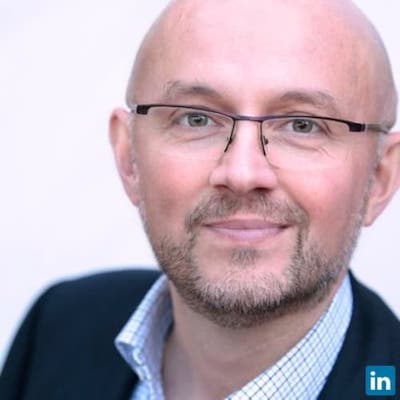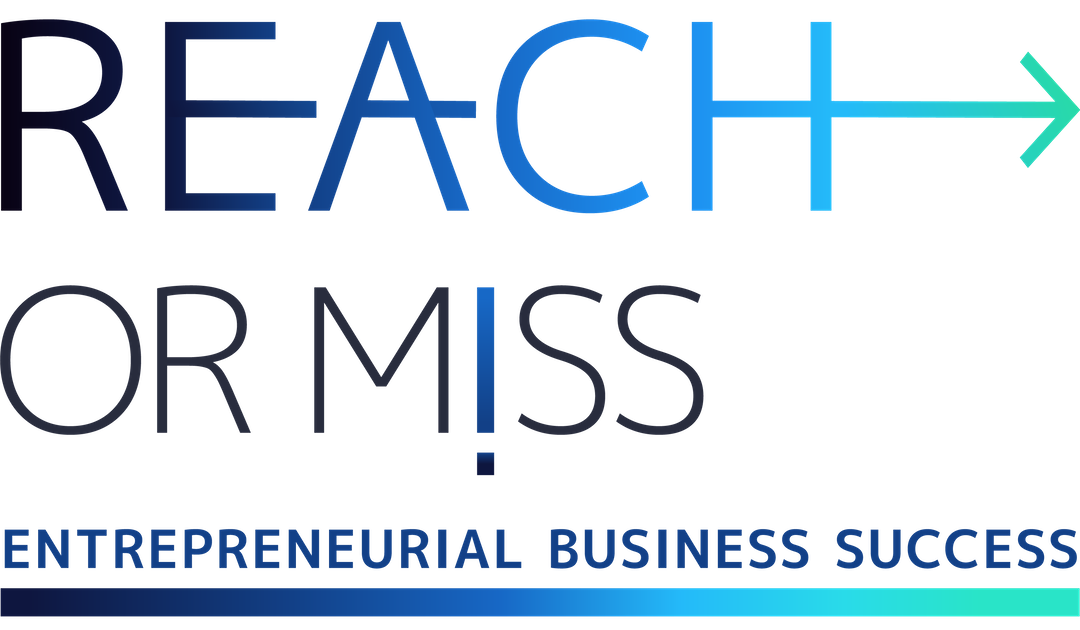Ep. 147 – Nicolas Babin “I have a daily mantra (from Japanese) : Fall down 7 times but stand up 8 – this is the key for all success in entrepreneurship”

Nicolas Babin, a french citizen has over 30 year experience in high tech industry. He has worked and lived for over 20 years in the US, Europe and Japan. He is a pioneer in AI and robotic having served over 15 years at the helm of Sony Europe.
He was managing director of Sony Entertainment Robots Europe and head of communication for Sony Europe. He then was managing director of several companies in the US, UK, Germany and France.
Nicolas created and developed over 21 companies in his career so far. He has sat and sits on many boards as a non executive and executive member.
Most passionate about
- I am most passionate about the project that takes up about 80 percent of my time today. It’s a company that I started three years ago with an associate and good friend of mine, Benoît Mirambeau. The two of us started a diabetes management company named MirambeauAppCare.
- This company manages diabetes, especially the level of insulin that people need to inject themselves with based on their doctors’ protocols, glycemic levels, food intake, and workout activities. It’s relevant for all types of diabetes (type 1 and type 2) as well as for pregnant women.
Starting the company
- MirambeauAppCare stems from the fact that Benoît’s mother has been ill with diabetes for 30 years. In 2015, it got so bad, she fell into a coma. Benoit got scared and said, “Don’t worry, Mom. It’s Friday. By Monday, I will have found an app for you.” Throughout the weekend, he looked for an app but could not find anything that would manage the exact level of insulin for her.
- Benoît’s passion is coding. So, he said, I’m going to make you one. He worked for over 800 hours to create this app, which is based on doctor’s protocols and can take into consideration, as I mentioned before, glycemic levels, food intake, and workouts. After that, he started to test it and show it to doctors. Everybody was amazed.
- But Benoît had never created a company. When I became involved, his company was my 16th company. We had the same accountant. So, he went to his accountant and said, “Look, I have this product. Everybody’s telling me that it’s fantastic. I need to start a company but I don’t know how.” And the accountant put us in touch. We became friends instantly. We have a very great relationship. I helped him set up the company.
- He’s the CEO of the company. I’m in charge of everything but development. I’m in charge of marketing, sales, international business development, etc. He’s like a CTO. He’s the CEO but he’s in charge of the product.
- That’s how we started the business. Then we won the CES Innovation Award in 2018 in Las Vegas, while last year we won the Arab Health Innovation Award in Dubai.
- We’re the only company that has this type of product based on A.I. and machine learning. Machine learning is part of A.I. Basically, after three months, the product becomes so personalized that it’s really made for the patient.
Nicolas’s career
- I’ve been involved in AI since 1996, when I headed up the Sony Robotics Division. The product was called Sony Aibo Robotic Dog for Artificial Intelligence Robot. It was a small dog that we sold from 1999 to 2005 and that was relaunched last year.
- I’m very lucky. I’m a passionate guy and I’ve really enjoyed my life so far. I’ve worked 20 years outside of France; I worked five years in the US and met my wife (who is American) in San Francisco. Then we moved to London to start our life together.
- I started a European operation in London. Then, from London, we moved to Brussels. From Brussels, we moved to Tokyo. From Tokyo, we moved to Berlin. Sony, being a Japanese company, moved me quite regularly and I went up each time I moved. I was in charge of the European robotics division. So I’ve been a pioneer in any type of AI.
- What I really enjoyed—and that’s why the robotic division was perfect for me—was working with an entrepreneurial mind within a large company, which meant that I had financial resources. I didn’t have to look for money and fundraise all the time. Instead, I could help entrepreneurs.
- I’ve really enjoyed working with young people. It was really interesting to use my know-how and the fact that markets recognized me because I was one of the first pioneers in terms of A.I. I enjoy using my name and experience to help younger people who want to start companies.
Nicolas’s best advice for entrepreneurs
- My best advice is to not listen to that little voice in your head saying, “Oh, I know it’s gonna work.” I’ve heard that so many times, even in my own head. I’ve made the same mistake, thinking, ‘Of course there is a need for this.’ Well, that little voice is wrong.
- You need to go outside and check if there’s a need, if there’s a market. That’s the biggest mistake that businesses make: to think that there’s a need and market, and to then go for it and find that it doesn’t work. Don’t invest without proof that there really is a need, that the business model works, and that the business plan is credible.
- Being flexible is another matter. Pivot quickly when you realize that your idea is not going exactly where you thought it would go. Don’t wait a week to make a decision. Make a decision right there, right then, and move fast so that you can go where the market is going. Again, the market is the basis for everything. One very good example, which I give to everyone, is “KISS”: Keep It Simple.
Biggest failure with a customer
- This involves a company that I started in early 2010 with the wife of a very good friend. She had two-thirds of the company and I had one-third of the company. It was a car-sharing app.
- We thought we’d smarter than BlaBlaCar, which is also a French company. But BlaBlaCar is huge. It has already made a billion euros. We thought we would take a small niche of the market and go for B2B—so, targeting only companies and offering car-sharing.
- Well, again, that little voice saying, “Oh, of course it will work. Everybody needs car-sharing.” So, we spent a lot of money on developing this product.
- In the end, we realized that there was no market. It took us about a year to develop the product and then, for six months, we visited so many companies. We were just doing that nonstop until we suddenly realized that there was no market, no need. So, we had to shut down the company.
- That’s the failure that affected me the most—because I listened to the small voice telling me, “Yes, there is a market.”
Biggest success due to the right customer approach
- I’d like to go back to a coffee company entrepreneurship called Mexi Coffee. It’s probably the company that I’m most proud of because we really started from nowhere and now it’s a huge company, with close to 50 million in revenue. Customers come back all the time. The company is growing over 30 percent each year, which is rarely seen these days.
- The company started around 2007/2008, so it has been going on for a long time. The customer focus was perfect, as we started a B2C-only business. We did everything that was right to do on the Internet at the time. Everything was backed by data.
- We really tested the market on a small scale at the beginning—just around where we were based. Then we grew slowly but very smartly from the town where we were based to the region, then national and international. Though it took a long time to get all the way to international.
- We had something very practical that worked well, without any bugs, and that would make the customer’s experience and journey second-to-none. That was the reason why we were very successful.
Most recommended technological tool
- I think I’m going to shock you but the best tool I’ve ever found, at least at the beginning of every project I’ve started, is Excel. Although I know a lot about technology, Excel is my most recommended tool because it’s cheap and easy. We all learned Excel when we were younger, so when you use it, you can relate to many people from different environments.
Nicolas’s key success factor
- My one key success factor is h We cannot forget, in any way, shape, or form, that a company’s success is based on people. What has affected me the most is my ability to get along, share a vision, and share values with the right people.
- With the company that was my biggest failure (the one I talked about before), the only goal was to make money.
Nicolas’s Mountain
- I have a very strong relationship with mountains in both senses: real mountains and also mountains in the spiritual sense. I climb mountains in the Pyrenees between France and Spain. I love these mountains. They are special places for me.
- Another mountain that has always fascinated me is Kilimanjaro because it’s the highest mountain in Africa. You have snow in the land of desert and heat and sand. And this mountain, you know, it’s reachable. You need to train, obviously, but it’s reachable.
- I think that in terms of spirituality, Kilimanjaro is something special because Africa is the place from which humanity originated. And, apparently, the view from Kilimanjaro is just superb.
- With people I work with, my vision is the top of the mountain. This is what I like about my vision: it’s my North Star. I know I will never reach it but it will always guide me. The vision is the top of the mountain.
The Best way to connect with Nicolas
More resources for Entrepreneurs
- Don’t Miss – Customer Focus Strategy & Execution: Market Analysis for Fundraising
- Hayut Yogev’s Latest post: Is the magic that helped entrepreneurs like Jeff Bullas (570K Twitter followers) or Douglas Burdett become leading successful influencers happening again?
- Former interview: Jonathan Slain a financial expert, had to borrow a quarter of a million from his mother-in-law. Today he owns the site RECESSION.COM


